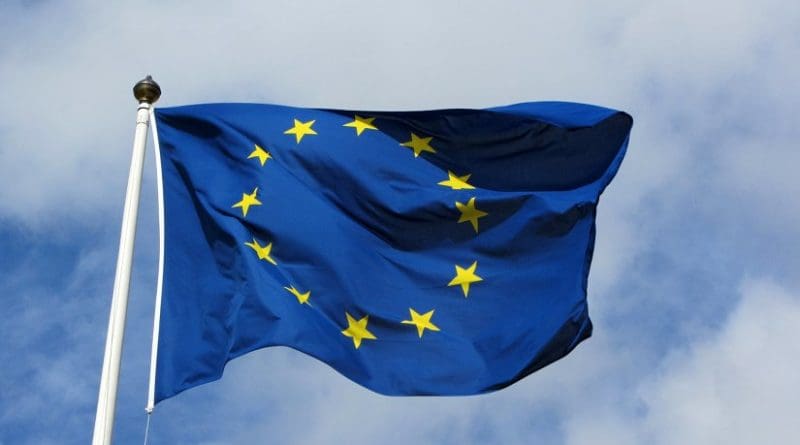European Union And Asian Security – Analysis
By SAAG
By Dr Subhash Kapila
The European Union till recently was credited with being the ‘third pole’ in the multipolar world that exists currently and these deductions were logical when the combined political, economic and military might was taken into account of its leading members France Britain and Germany, and with France and Britain being Permanent Members of the UN Security Council with veto powers.
Admittedly, Indo Pacific Asia barring India was literally ‘The Far East’ as Britain in colonial times referred the region in terms of geographical distances from Britain and Europe too. But today in Indo Pacific Asia are located Asia’s three emerging powers of China, Japan and India whose combined political, economic and military weight brought the realisation that at the turn of the Millennium the global shift of power had taken place to Asia, with telling effect.
The European Union has sizeable economic stakes in the major Asian economies which should make the European Union as a significant stakeholder in Asian security. Asia continently extends from the Eastern Mediterranean to the Western Pacific littoral of Asia. But the fulcrum of Asia’s strategic strength is fixated in the geographical triangle of China, Japan and India, commonly referred toady in strategic terms as Indo Pacific Asia. In the absence of any comparable ‘Asian Union’ like the European Union, as a formally structured organisation, the European Union perforce has to limit its strategic engagements individually with each of the ‘Big Three’ in Asia, namely, China and Japan and India.
In the above strategic ground reality lies a policy minefield for the European Union when with the changed Asian geopolitics of Indo Pacific Asia, should the European Union wish to graduate from the exercise of its so far traditional ‘soft power’ strategy to an exercise of European Union ‘hard power’ strategy in Asia. The significant challenge to the European Union would then be as to how it recasts its current overly China-Centric pattern of Asian engagement to one of balanced engagement with the ‘Big Three’ of Asia.
Complicating the European Union’s challenge in this direction is the fact that China is in adversarial modes of confrontation with Japan and India over territorial disputes and further complicated by China’s propensity to unabashedly resort to military brinkmanship on territorial disputes, witnessed both in its borders with India and with Japan over the Senkaku Islands.
The European Union may have to painfully come to terms with the reality that while China may be its preferred partner and main focus of European trade activities, China cannot be the European Union’s preferred or natural strategic partner in the maintenance of Asian security and stability. China’s credibility as a responsible stakeholder in Asian security is at a new low. Japan and India are the eminent natural strategic partners of the European Union for Asian security purposes and it is where the European Union’s future strategic investments should be made.
In the above connection, it would be worthwhile to quote Dr Axel Berkofsky in a recent CSIA paper who observes that “In contrast to the European Union’s broad engagement with China on economic and commercial issues, a dialogue on security and strategy in Asia with China represents a waste of limited bandwidth that the European Union should devote to other efforts.”
Elsewhere in a different paper, the above-mentioned author observes that European Union’s approaches to China will not yield results and the problem is that “China is conducting very aggressive and assertive regional foreign and security policies.” Obviously China’s approaches to its Asian neighbours impact its credibility as a responsible stakeholder in Asian security. If that be so, can the Europeans Union afford its security engagements with Asia on a heavily China-Centric approach to Asian security?
That the European Union wishes to adopt a role in Asian security, The Senior EU Representative on Foreign Policy expressed the following statement of intent at the Shangri La Dialogue 2015 in Singapore: “Our engagement with Asia goes well beyond trade, investment and aid. It is political, it is strategical and it needs to develop more also in the security field.”
In the security field, the European Union should make a beginning by supplementing the efforts of the United States, India and Japan for maritime security in the Indian Ocean and actively support the principle of ‘defence of the global commons and freedom of unimpeded navigation’ through the South China Sea. It is high time that the European Union does so as its economic health is dependent on the ‘freedom of the high seas.’
Concluding, in light of the above intentions articulated by the European Union, and in view of the rapidly changing security environment in Asia where an aggressive China is more feared than respected, the European Union in its approaches to Asian security can no longer be a passive spectator or a neutral observer of Asia’s rising security challenges arising from China’s assertive stances.. The European Union has to formulate ‘hard power’ strategies to assist in the evolution of Asian security and stability, not only to regain its potential as the ‘third pole’ in global affairs but also to protect its corporate security interests in Asia.

